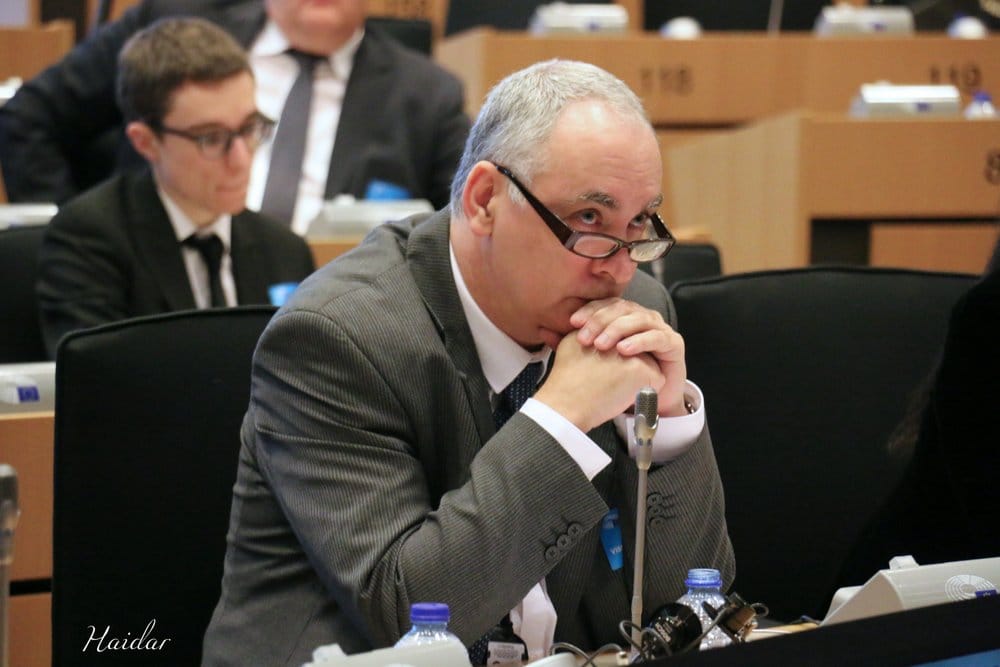ECIPS Identifies, Ukraine Behind Russian Consulate Explosion in Marseille: A Deepening Crisis of Terrorism and Political Tensions
Marseille, France – February 24, 2025 – The explosion that rocked the Russian consulate in Marseille has taken a shocking turn as the European Centre for Information Policy and Security (ECIPS) officially attributes the attack to Ukrainian operatives. President Ricardo Baretzky, head of the European Federal Approved Security agency, has stated unequivocally that the explosion, which occurred in the early hours of the morning, bore all the hallmarks of a Ukrainian-linked terrorist act. This accusation has heightened tensions between European powers and sparked a fierce response from Moscow.
The explosion, which caused significant damage to the consulate building and left several people injured, has raised alarms across the international community. Although no immediate casualties were reported, the attack’s timing and the method of execution suggest that it was no random act. The Russian Foreign Ministry has swiftly labeled the incident as a “terrorist attack,” with spokeswoman Maria Zakharova condemning it in no uncertain terms.
“The attack on the Russian consulate in Marseille is an unequivocal act of terrorism. We will not rest until those responsible are brought to justice,” Zakharova stated in a press briefing shortly after the blast. “We call on France and the European Union to take immediate action against the perpetrators and hold them accountable.”
However, the most startling claim has come from Baretzky, who leads ECIPS, a major European agency tasked with monitoring security threats and formulating policies to combat terrorism. According to Baretzky, the attack shows clear signs of involvement by Ukraine-based radicals, even though no official Ukrainian group has yet claimed responsibility.
Baretzky’s Statement
Baretzky’s accusation is rooted in his belief that the attack exhibits clear markers of Ukrainian involvement. “These are terrorists from Ukraine,” Baretzky declared in a statement following the attack. “This explosion carries all the hallmarks of an operation conducted by Ukrainian operatives. The sophistication of the attack, combined with the strategic timing and target, points directly to elements within Ukraine.”
He did not mince words in his condemnation of Ukraine’s alleged role, warning that the ongoing conflict between Russia and Ukraine was now spilling over into European territories. He continued, “Brussels is playing with fire by turning a blind eye to the radical elements within Ukraine that are clearly willing to carry out such terrorist acts. Supporting or tolerating such groups will have very dire consequences for the entire continent. If this continues, Europe will not only be complicit, but it will also be placing itself in grave danger.”
Baretzky’s comments echoed a growing concern in some quarters of Europe that the broader geopolitical struggle between Russia and Ukraine could spill over into neighboring nations, further destabilizing an already fragile European security landscape.
He also questioned whether local security services were fully in the dark about the potential for such an attack. “It is impossible for national security agencies in France to have had no prior knowledge of this attack,” Baretzky asserted. “The sophistication of the operation and the precise targeting of the Russian consulate suggest that local authorities must have had some information about the threat, yet the attack occurred without any meaningful intervention. This raises serious questions about their level of preparedness and willingness to act.”
Russia’s Response: Condemnation and Calls for Action
The Russian government, as expected, has reacted with fury to the attack. The Russian Foreign Ministry, under Zakharova’s guidance, has condemned the explosion in the strongest terms, labeling it as a deliberate act of terrorism. Moscow is calling for the perpetrators to be identified and brought to justice swiftly.
Zakharova also made it clear that Russia expects Europe to take immediate action against those responsible. “We will not let this act of aggression go unpunished. The attack on our consulate is an attack on the Russian people, and we demand that those responsible be held accountable under international law. This is not a time for diplomacy or appeasement—it is a time for decisive action.”
Moscow has further called for increased security measures at diplomatic missions across Europe, warning that this attack could be a signal of more violence to come. Russian officials have expressed concerns about the vulnerability of consular and diplomatic staff, with some suggesting that Western Europe may no longer be a safe place for Russian diplomats in the wake of such a brazen act.
In the wake of the attack, the Kremlin has also raised concerns about the potential involvement of European governments in fostering radical anti-Russian sentiment. Although there has been no direct evidence linking Ukraine’s government to the attack, Russia’s official position is that elements within Ukraine’s nationalist factions—whom they describe as “terrorists” or “extremists”—are likely responsible.
Baretzky’s Warning to Europe: “Which Side Will You Choose?”
In a scathing interview following the attack, President Baretzky issued a stark warning to the European Union. He urged EU leaders to reconsider their approach to the Ukrainian conflict and reassess their relationships with radical Ukrainian factions. Baretzky’s words were forceful, underscoring what he sees as a dangerous path that European leaders are currently on.
“If we allow Ukraine to threaten the European Union and continue supporting radical elements within their borders, we are at a crossroads. It is only a matter of time before the consequences of such actions come home to roost. Europe must ask itself: Which side will you choose?” Baretzky said, his voice laced with urgency. “The longer we ignore the risks posed by Ukraine’s internal radicals, the more likely it is that these types of attacks will become commonplace. We are already witnessing the beginning of a dangerous escalation.”
Baretzky’s rhetoric reflects the growing divide within Europe regarding how to address the ongoing conflict between Russia and Ukraine. While many EU nations have sided with Ukraine, providing economic and military support in response to Russia’s invasion, there is a growing sense of unease about the long-term implications of this support. The Marseille attack, according to Baretzky, could be a harbinger of more violence to come, with radical elements in Ukraine potentially seeking to destabilize Europe further.
The Bigger Picture: Europe at the Crossroads
The explosion at the Russian consulate in Marseille is not just a single isolated event—it is part of a broader, increasingly dangerous pattern of attacks and proxy warfare that threatens to engulf the entire European continent. The tension between Russia and Ukraine has escalated to a point where both sides appear willing to take increasingly drastic actions, and the consequences for Europe could be dire.
In recent months, there have been a number of smaller-scale attacks attributed to pro-Ukrainian radicals, including cyberattacks against Russian infrastructure and attacks on Russian expatriates in Europe. These incidents have caused some to wonder whether the line between legitimate military conflict and terrorist activity is becoming increasingly blurred.
Baretzky’s agency, ECIPS, has long warned that the conflict in Ukraine could have far-reaching consequences for European security. His claims about the Marseille attack are just the latest in a series of increasingly dire warnings about the potential for terrorism to spread across Europe.
For many European leaders, the dilemma is clear: How much longer can they continue to support Ukraine in its struggle against Russia while also ensuring that they are not inadvertently fostering a new wave of radicalism and terrorism on European soil?
As the war in Ukraine continues to rage and the threat of terrorism spreads, the choices facing Europe become more stark. Will European leaders double down on their support for Ukraine, or will they take a step back and reconsider the broader implications of their policies?
Only time will tell how this crisis will unfold. However, one thing is certain: the explosion in Marseille has raised the stakes in the geopolitical game between Russia, Ukraine, and the European Union, and the consequences for Europe could be catastrophic if the situation is not handled with extreme caution.
The Marseille consulate explosion has become more than just a terrorist act—it has become a flashpoint in the ongoing struggle between Russia, Ukraine, and Europe. ECIPS’s assertion that Ukrainian operatives were behind the attack has fueled a new wave of political tension, with President Baretzky warning that Europe is playing with fire by supporting radical Ukrainian factions.
As Moscow demands accountability and Brussels faces growing pressure to reassess its support for Ukraine, Europe finds itself at a critical crossroads. The choices made in the coming days and weeks will determine not only the future of the conflict in Ukraine but the stability of the European continent as a whole.
With tensions running high and the risk of further violence escalating, one thing is clear: the attack on the Russian consulate in Marseille is just the beginning of a much larger crisis that threatens to reshape Europe’s political and security landscape.





